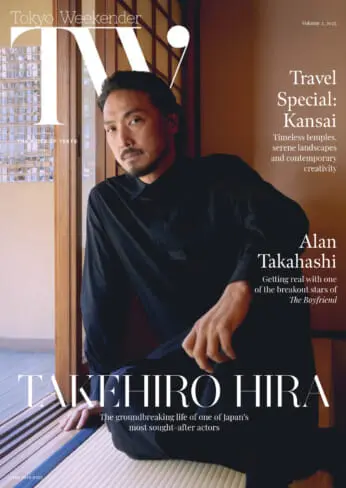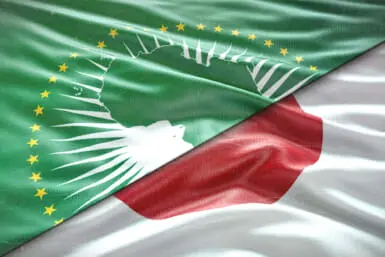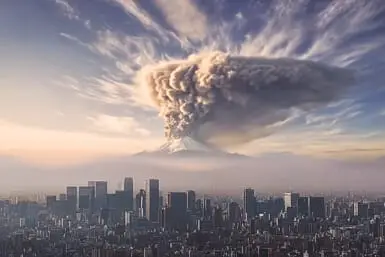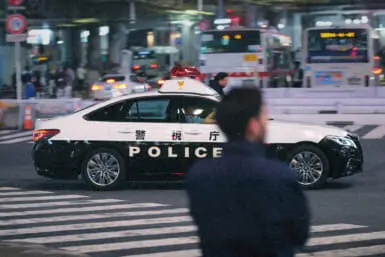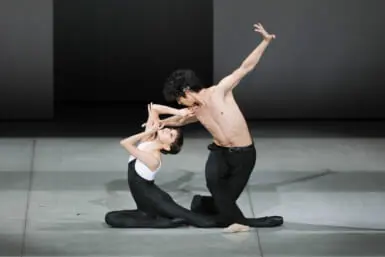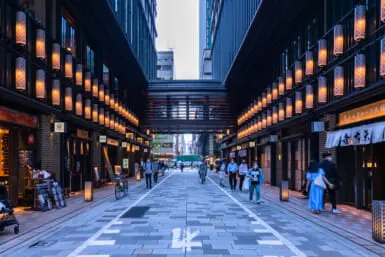by Henry Scott Stokes
I went down to see a great hotelier the other day. His name is Yutaka (“Dan”) Nakamura, and he is President and General Manager of the Royal Park Hotel, down in Hakozaki.
You may know of the hotel—Dan advertises in Tokyo Weekender, I rejoice to say— and its location close to the downtown transportation terminal for Narita. Dan was cock-a-hoop when I went to call on him, because he had just run into two stars of Japanese soccer—Ono and Inamoto— upstairs in the hotel’s Japanese restaurant that morning, having a late Japanese breakfast before they enplaned for Europe.
That tells you what the hotel has going for it. It is the closest of all Tokyo hotels to the Hakozaki terminal. All you have to do is to step out of the door, get on the bus and you are off to Narita. Busy men, with millions of dollars resting on their heads, do not trifle with time. They want to be on Narita’s doorstep when they wake up in the morning. But they do not want to stay out at the airport.
But where was I before I interrupted myself? Yes, Nakamura-san—or “Dan” to his friends. Here is a man who was in at the creation. His career as an international hotelier began in 1963 when the Tokyo Hilton opened with Dan, as one of the young managers, running the show. He has been in the hotel trade ever since.
He joined Royal Park Hotel when it opened 13 years ago, and has been running the steadily expanding franchise ever since. It is a Mitsubishi-owned operation for the most part. The largest single shareholder in his pioneer hotel at Hakozaki is Mitsubishi Estate. Some of Dan’s half dozen hotels are 100% Mitsubishi owned. A new one is about to open at Shiodome in Shimbashi in 2003.
I went to see Dan for a particular reason. Something has struck me of late. Big name hotels—on top of the inevitable world-wide chains; we have seen them coming in for a dozen years—are opening in Tokyo, or preparing to do so, one after another. The names are close to the top in the trade—they are names like St. Regis, Mandarin, Peninsula and so on.
What is happening? I wanted to ask someone with long experience in the field. I mean, this is a deluge of the brightest and the best, indicating that something extraordinary is afoot.
Here’s the story. For a longtime there was only one internationally run hotel in the city. This was the Tokyo Hilton, now in Shinjuku. This was located conveniently in Akasaka for many years. Some of us were to be found there in the ’60s and ’70s, up to the time when the Japanese owners of the building finally succeeded in a long-term plan they had to drive out the Hilton.
I refrained from asking Dan about that episode, because my focus is on the future. To be sure, conditions here then were such that foreigners could be looked at askance and, on occasion, be just shooed away. The wheel has come full circle—the door has opened to the point where all and sundry are being encouraged to kick-start the economy at this point.
(Thus, I note, the Japanese Commercial Code has been completely revised—to the most drastic extent in 50 years—to make it as easy, in almost all legal respects, to start up a business here in Japan as it is in Silicon Valley. This was the subject of an informative session held at the Press Club the other night by the International Computer Association (ICA) and organized by Darren K. McKellin of MCI WorldCom Japan as President of the ICA.)
This sea change has the hotel industry humming. Imagine. There will be a second Grand Hyatt Hotel opening up in the Roppongi Hills development in spring 2003. And, then, one after another, the names will roll forth. There is to be a St. Regis at Shiodome, hard by Shimbashi Eki; there is to be a Peninsula, where the aged, creaking Hibiya Park Building stands—can’t wait for that to go, and for the owners of Mitsubishi Estate to put in something more attractive.
And there is to be a Mandarin in the new building ‘being put up in Nihombashi by Mitsui—they are tearing down the ancient structure that housed the head office of Mitsui RE, and, lo and behold, in will pop a Tokyo version of Hong Kong’s Mandarin Hotel, no less.
These, at least, are the plans being mooted. Not all of them may be materialized. Formal announcements have, in some cases, yet to be made—for example of that Peninsula Hotel project facing Hibiya Park. But, pretty much, the deals are sealed in stone, from what I understand. Shigeru Takagi, President of Mitsubishi Estate, confirmed to the foreign press on Sept. 17 that the decision is all but taken.
So what gives? Why now? Dan reeled off to me a spate of figures. The gist of it is that the Japanese authorities—having kept their heads buried in the sand for many a decade—have finally, but finally woken up to the fact that others had overtaken them in the tourist stakes.
Hong Kong, Singapore and points east and west in Asia— hello Shanghai, hello Seoul— have gone roaring ahead of Tokyo. The international travel business hardly exists here in its tourist dimension. You have businessmen coming in here from overseas, and that is it.
What the hotel trade here sees now, thanks to their lobbying in part, is that the Japanese Government and the City of Tokyo—in the shape of Governor Shintaro Ishihara— have indeed woken up. The years of the sleeping sickness are over. Someone has got to Shintaro in a big way, already, some years ago.
He dramatized the issue with talk of opening “a casino” in Tokyo. Well, that is a real project, and it will materialize in my humble opinion—first the Tokyo Stock Exchange, then the openly managed casino—but “casino” is really a code-word in Shintaro’s language for all the other things that have got to be done (a) to expand the tourist trade here, by making Tokyo into an international city, and (b) putting the facilities in place, to make this happen i.e. by opening up Haneda as well as Narita to international air traffic.
I didn’t press Dan too hard on that last topic, it being close to home. But if he thinks that the writing is on the wall, and that we are going to have two international airports in Tokyo, then it will happen.
“Sure, we can have two international airports,” he says, “how many does New York have—several anyway, and no one thinks that strange; on the contrary, it is coming to be normal.”
“So I think the time will come when international air traffic comes in both at Narita and at Haneda, it has to—plus it has to be made easier to get in from Narita to Tokyo, that is a must.”
